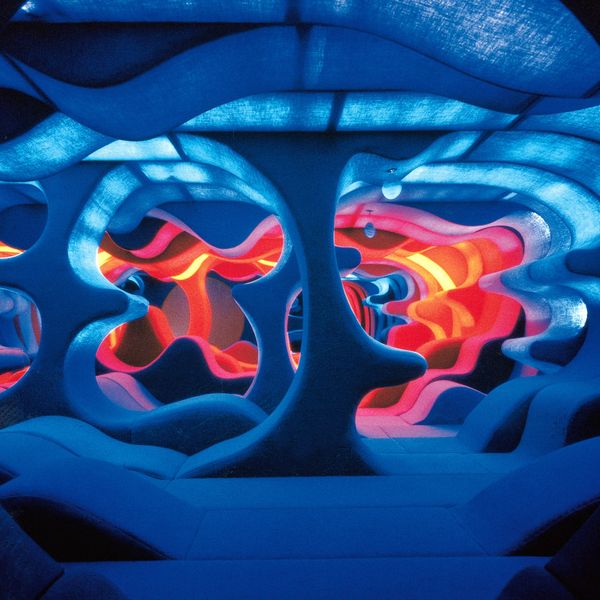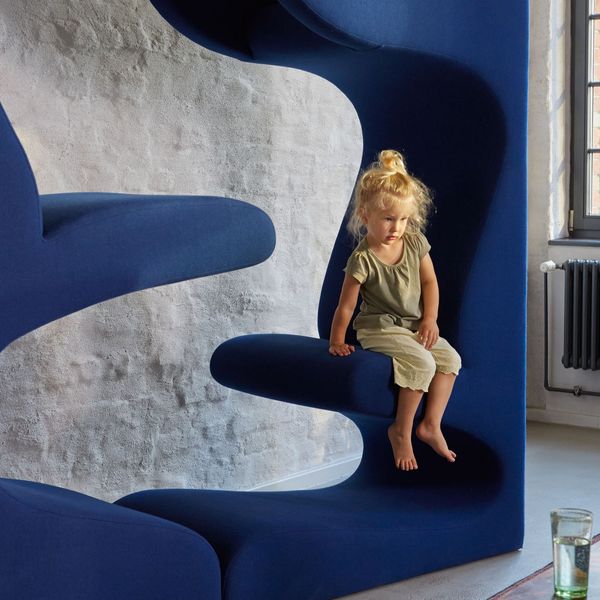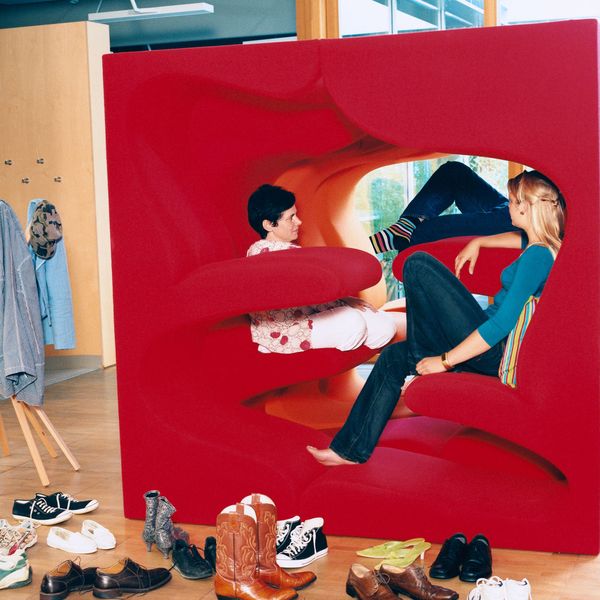Living Tower
Verner Panton, 1969

Verner Panton's passion for bright colours and geometric patterns manifested itself in an extensive range of textile designs. By fusing the elements of a room – floor, walls, ceiling, furnishings, lighting, textiles and wall panels made of enamel or plastic – into a unified gesamtkunstwerk, Panton's interior installations have attained legendary status. The most famous examples are the 'Visiona' ship installations for the Cologne Furniture Fair (1968 and 1970), the Spiegel publishing headquarters in Hamburg (1969) and the Varna restaurant in Aarhus (1970).
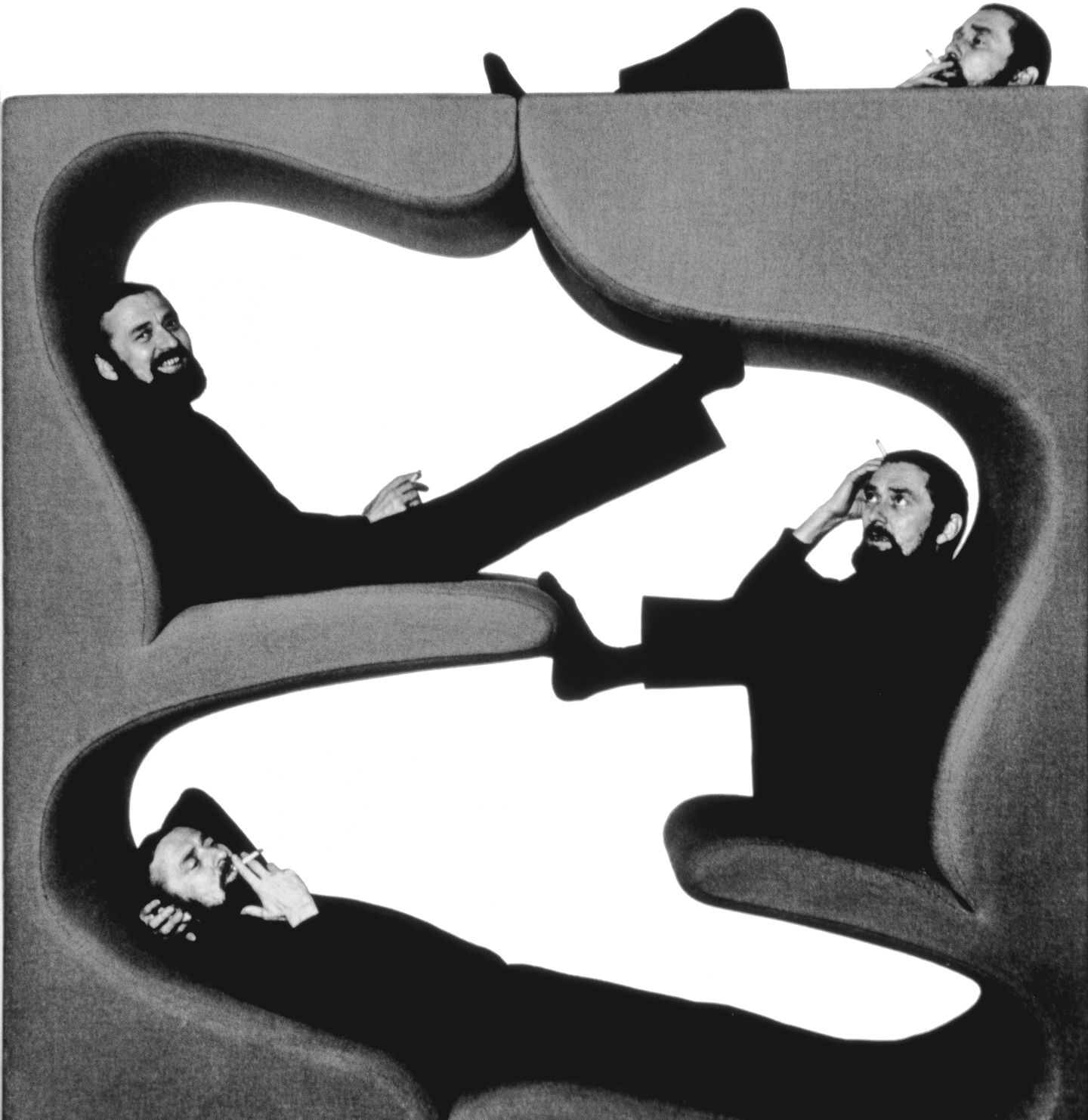

The 'domestic landscape' was a major theme in Sixties Design. Verner Panton's Living Tower was created within this context. With its organic forms, this furniture sculpture can be used on four different levels. Over two metres high, the appealingly upholstered seating tower has a stable understructure made of birch plywood. Users are impressed by its comfort, and the clever arrangement of the interior niches encourages communication.
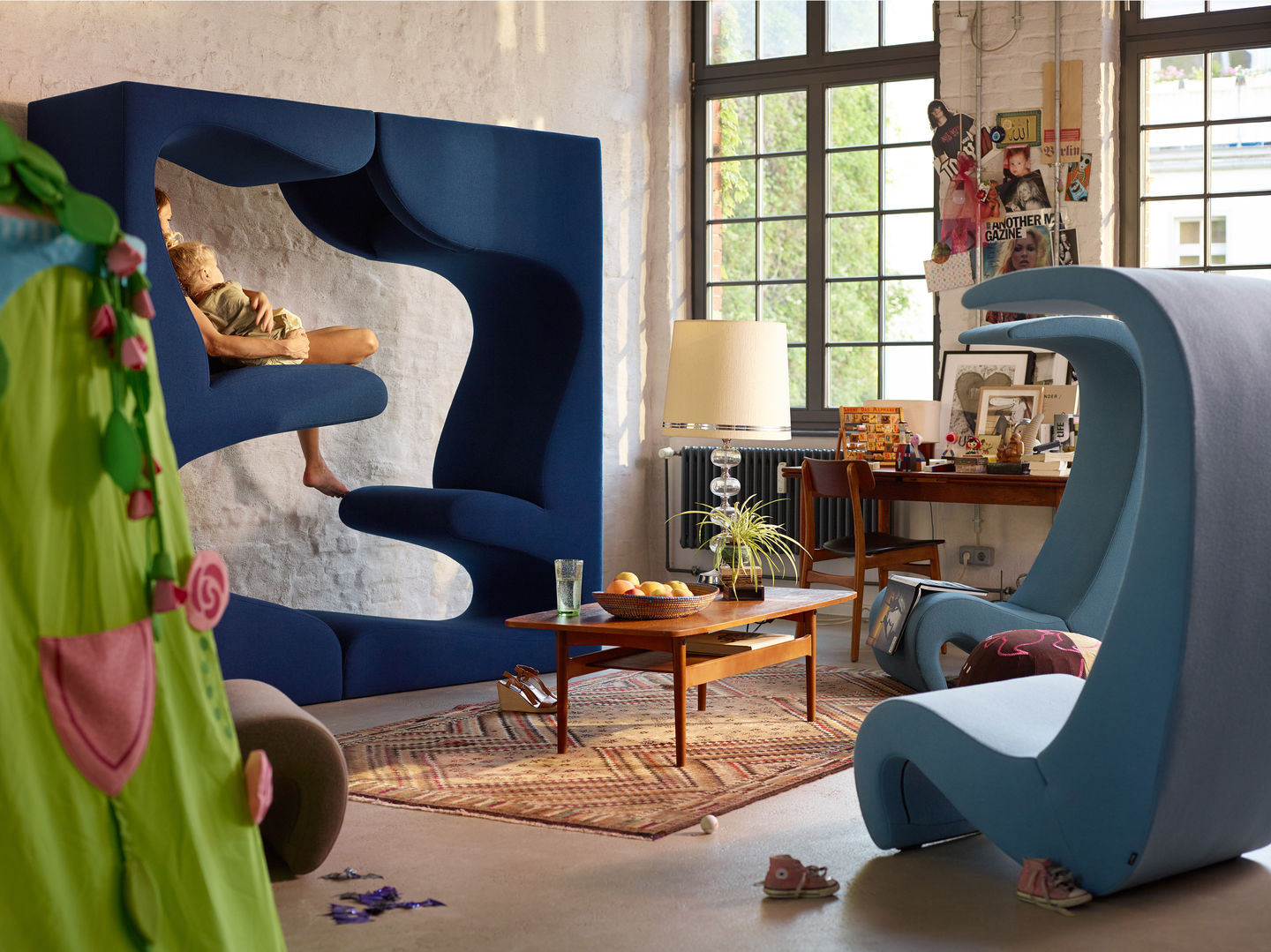
Information
Colours and materials
Product and safety information
Dimensions
Colours and materials
Product and safety information
Dimensions
Unlimited combinations
Thanks to the carefully coordinated selection of materials and colours available in the Vitra Colour & Material Library, products by Vitra can be effortlessly combined to create diverse, individual collages.
This product was designed by
Verner Panton

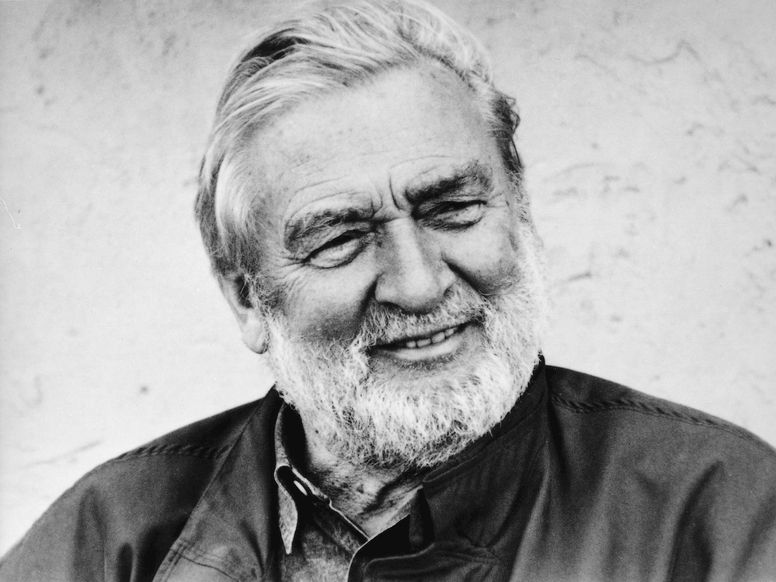

Verner Panton was an influential figure in the development of design during the 1960s and ’70s. After moving to Switzerland in the early 1960s, the Danish designer became known for his inventive, novel ideas for furnishings, lighting and textiles. The masterful use of colour was a hallmark of his work.
